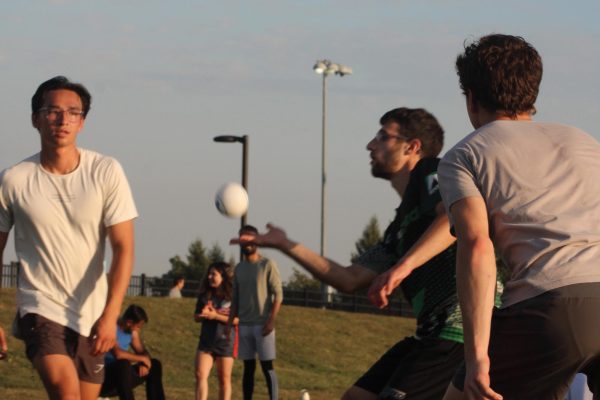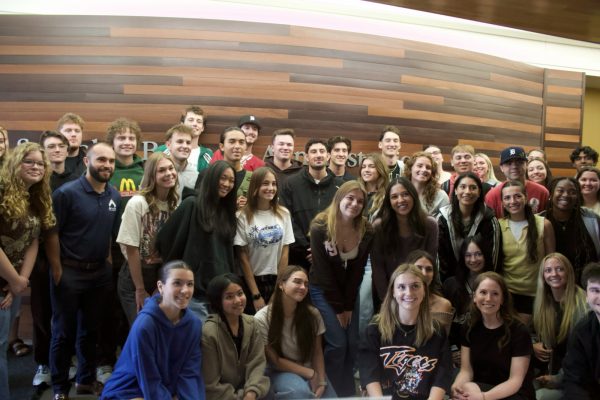Grizzlies respond to new human rights
On Friday, June 26, 2015, our country’s ban on same-sex marriage was lifted by the Supreme Court in a 5-4 decision. 14 couples challenged bans in four states, Michigan being one, in our nation’s highest court and now same-sex couples can legally marry in all 50 states.
“The right to marry is a fundamental right inherent in the liberty of the person, and under the Due Process and Equal Protection Clauses of the Fourteenth Amendment couples of the same-sex may not be deprived of that right and that liberty,” reads the syllabus for the case, Obergefell v. Hodges. “Same-sex couples may exercise the fundamental right to marry.”
Since the ruling, OU students and faculty have responded with their thoughts on one of the most talked about Supreme Court decisions in recent memory.
Justyn Frink, senior communication major and president of the OU Forensics team, was pleased with the decision and saw it as a springboard for further legal action.
“Gay rights are human rights and human rights are gay rights,” Frink said. “With the gay community now able to marry it is only a matter of time until the other rights fall into place.”
“It was a long time coming,” says Grace Wojcik, faculty advisor for the Gay Straight Alliance (GSA) at OU. “I never thought the day would come just 10 1/2 years after Prop 2 (the Constitutional Amendment prohibiting same sex marriage in 2004) passed in Michigan.”
Other than a shared Facebook status on the day the verdict was announced, the GSA has not publicly reacted to the news.
“While GSA hasn’t made an official response, many of the members are happy with the news,” Wojcik said.
“I don’t think that the decision will have any impact on OU students,” said Student Body President and political science major Nick Walter. “I do think, though, that the decision should have been left up to the people in democratic elections, not handed down from on high by an unelected and unaccountable Supreme Court.”
Professor Jo Reger, director of the Women and Gender Studies program and head of the new LGBTQ – lesbian, gay, bi-sexual, transgender and questioning – minor, has focused many of her studies and writings on social movements. Reger sees the decision as a result of decades worth of LGBTQ social movement.
“I would argue that today’s increasing acceptance of LGBTQ people is partially the result of the social movement strategy of coming out,” Reger said. “As more people come to know LGBTQ folks, the opposition to their rights has lessened.”
Being able to put a ring on it, however, is far from the end of the fight towards equal opportunity for the gay community.
“Marriage is only one right amongst many that are needed,” Reger said. “In many places in the U.S., LGBTQ people still have no protection from discrimination in employment, housing, health care, etc.”
Reger cites a handful of other issues that are up to bat following the marriage ruling.
“There are still a lot of items on the agenda: transgender rights, immigration issues, employment and housing discrimination, continuing to address HIV and AIDs to name a few,” Reger said. “The movement is already beginning to focus on other issues. Same-sex marriage is not the end of the movement.”










